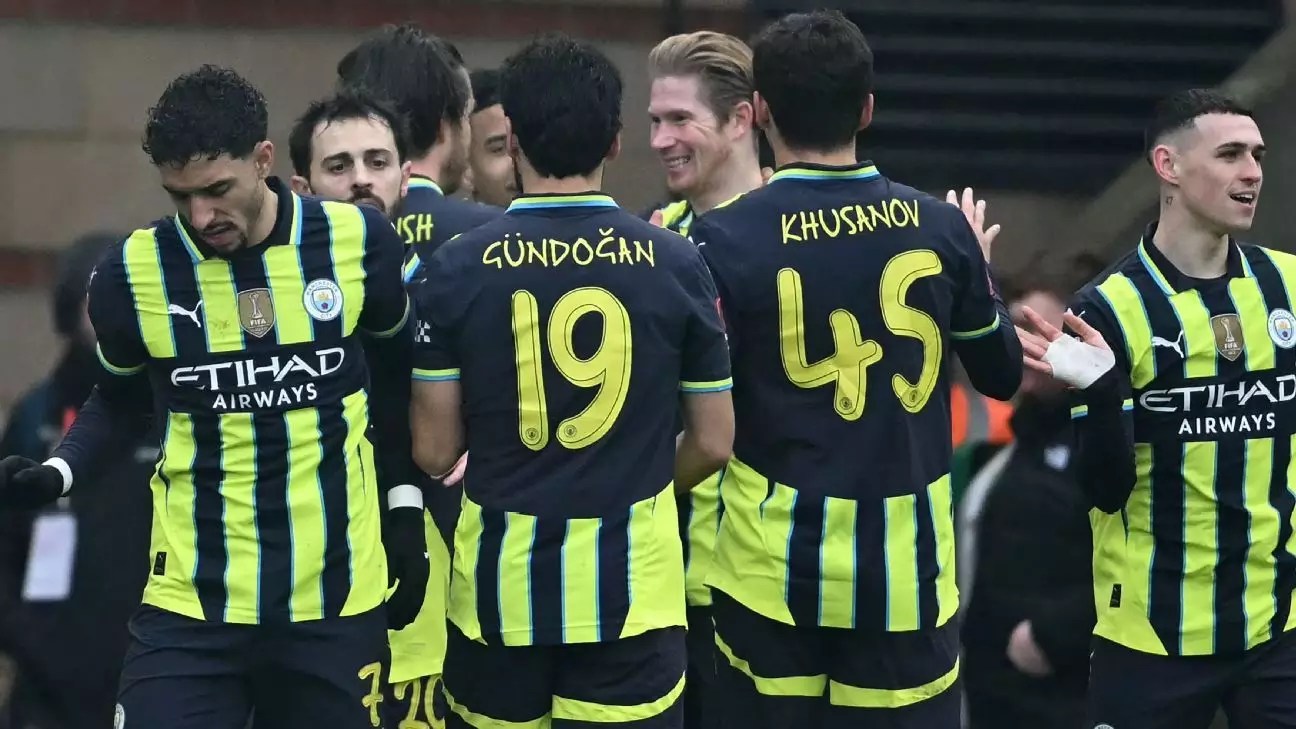In the unpredictable world of football, few tournaments capture the essence of surprise and drama as engagingly as the FA Cup. However, Manchester City’s latest outing against Leyton Orient serves as a critical juncture for the team, particularly its fresh acquisitions. With two new players making their debuts, the expectations were high, yet the reality was a stark contrast to what City fans have come to expect.
For Manchester City, the FA Cup fourth-round tie against League One’s Leyton Orient turned out to be an unexpected test of endurance. Nico Gonzalez, a £50 million signing from FC Porto, and Vitor Reis made their first appearances, but their debuts were far from memorable—Gonzalez was sidelined within minutes due to injury, while Reis’s role was cut short as City struggled to take control of the match. This lack of impactful introduction can raise questions about the pressures placed on new players, especially during a competitive season where the need for immediate contribution is paramount.
City’s elevated status means that new players are expected to adapt seamlessly, but this expectation must come with an understanding of the challenges they will face, illustrated by Pep Guardiola’s reminder that the intensity of football, especially in lower divisions, is often underestimated. His quip about Gonzalez needing to adapt to the rigors of the Premier League highlights the steep learning curve awaiting newcomers in high-stakes environments.
Leyton Orient demonstrated remarkable tenacity, painting a picture of perseverance against formidable opposition. This resilience culminated in a stunning 45-yard goal from Jamie Donley, which ironically was recorded as an own goal by City’s goalkeeper Stefan Ortega, who misjudged a deflection from the crossbar. This moment wasn’t merely a fluke; it showcased the potential for David-versus-Goliath stories inherent in the FA Cup. Fans in attendance will likely reminisce about this moment for years to come—a stark reminder of the unpredictable nature of football.
Despite the eventual 2-1 victory for City, the lack of flair or dominance throughout the match led to a questioning of their preparedness as they head into critical fixtures, especially with Real Madrid looming on the horizon. The victory did little in terms of silencing the doubts regarding City’s form and performances of key players. This particular match should serve as a wake-up call; complacency against such opposition is a risk that can have lasting ramifications.
While Guardiola maintained his trademark optimism, his strategies during the game raised eyebrows. With City down 1-0 at halftime, the decision to bring off Reis rather than invoke a more aggressive approach left fans puzzled. His reliance on experienced players at such a moment suggested a cautious mindset; a call likely influenced by the need to avoid further injuries as City navigates the murky waters of their season. Although control may have been prioritized, one has to question whether such a conservative approach is viable against teams that are willing to fight tooth and nail for every inch.
Guardiola’s acknowledgment of the external pressure—referring to the chants aimed toward him from Orient fans—was intriguing. It points towards the ever-present scrutiny coaches face, particularly during periods of instability. Guardiola’s light-hearted acceptance of these jabs reflects an understanding of the game’s psychology, but it does illustrate a broader trend where pressure can impact player performance and decision-making.
Reflecting on the day’s events, the overarching theme for City and specifically their new signings should be resilience. Whether it was the grit shown by Leyton Orient or the lessons learned by their new squad members, adaptability will be crucial as City faces tougher challenges ahead. With injuries already piling up, depth in the squad becomes ever more significant.
Looking forward, City must tighten their gameplay and ensure that every player—old and new—understands their role within the team’s framework. The Champions League knockout stages demand brilliance, intensity, and efficiency, none of which were fully displayed during the match against Orient. The time for lessons in adaptation is now, and immediate improvement is imperative. As they prepare for the colossal clash against Real Madrid, they must channel the lessons learned from their FA Cup journey and face challenges head-on, aiming to strengthen their position before the stakes escalate further.


Leave a Reply